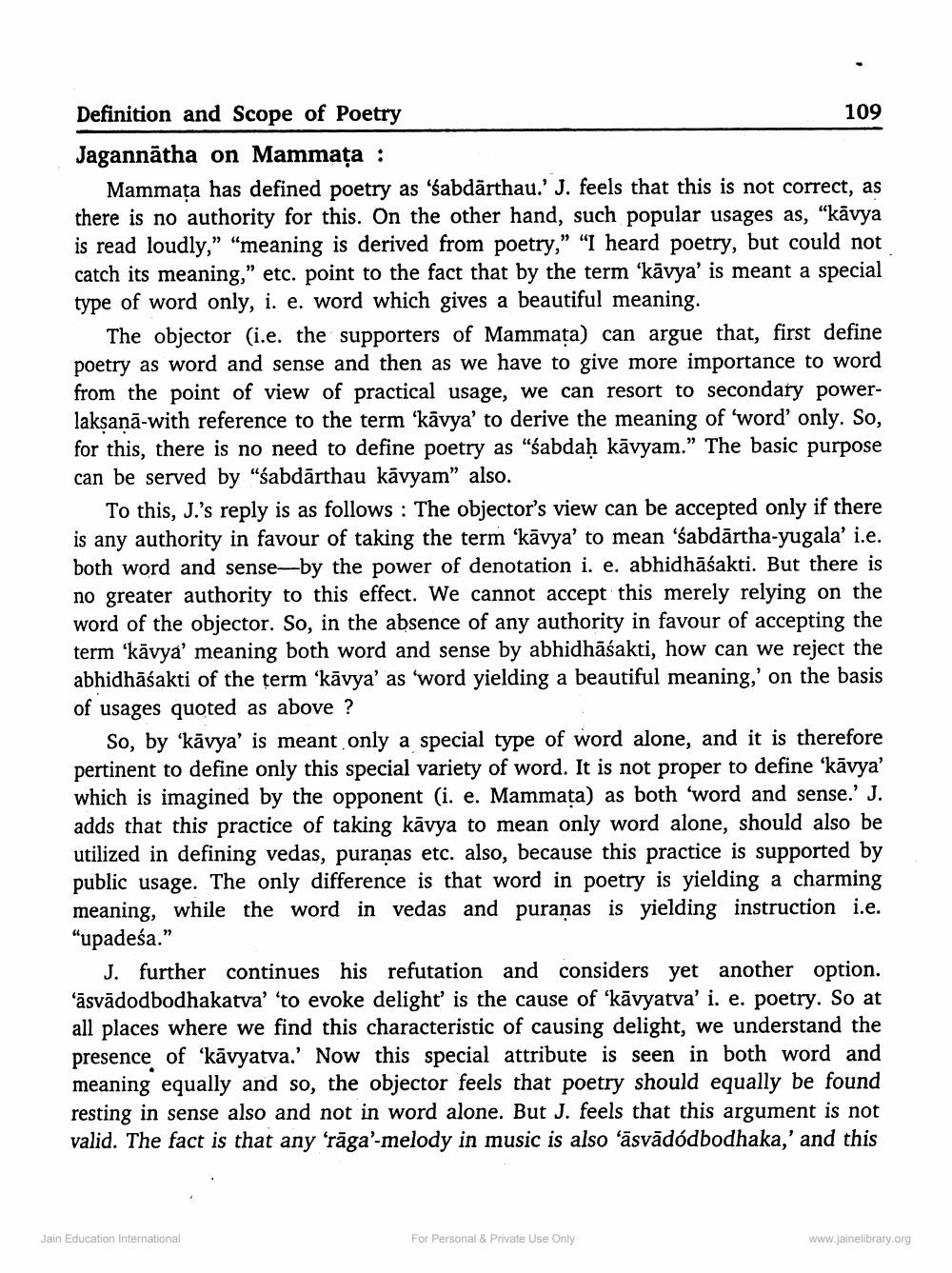________________
Definition and Scope of Poetry
109 Jagannātha on Mammața :
Mammata has defined poetry as 'sabdārthau.' J. feels that this is not correct, as there is no authority for this. On the other hand, such popular usages as, "kāvya is read loudly,” “meaning is derived from poetry," "I heard poetry, but could not catch its meaning,” etc. point to the fact that by the term “kāvya' is meant a special type of word only, i. e. word which gives a beautiful meaning.
The objector (i.e. the supporters of Mammata) can argue that, first define poetry as word and sense and then as we have to give more importance to word from the point of view of practical usage, we can resort to secondary powerlaksanā-with reference to the term kāvya' to derive the meaning of 'word' only. So, for this, there is no need to define poetry as "sabdah kāvyam.” The basic purpose can be served by "sabdārthau kāvyam” also.
To this, J.'s reply is as follows : The objector's view can be accepted only if there is any authority in favour of taking the term 'kāvya' to mean 'sabdārtha-yugala' i.e. both word and sense—by the power of denotation i. e. abhidhāśakti. But there is no greater authority to this effect. We cannot accept this merely relying on the word of the objector. So, in the absence of any authority in favour of accepting the term 'kāvya' meaning both word and sense by abhidhāśakti, how can we reject the abhidhāśakti of the term 'kāvya' as 'word yielding a beautiful meaning,' on the basis of usages quoted as above ?
So, by ‘kāvya' is meant only a special type of word alone, and it is therefore pertinent to define only this special variety of word. It is not proper to define 'kāvya' which is imagined by the opponent (i. e. Mammata) as both 'word and sense.' J. adds that this practice of taking kāvya to mean only word alone, should also be utilized in defining vedas, puranas etc. also, because this practice is supported by public usage. The only difference is that word in poetry is yielding a charming meaning, while the word in vedas and puranas is yielding instruction i.e. "upadeśa.”
J. further continues his refutation and considers yet another option. 'āsvādodbodhakatva' 'to evoke delight is the cause of 'kāvyatva' i. e. poetry. So at all places where we find this characteristic of causing delight, we understand the presence of ‘kāvyatva.' Now this special attribute is seen in both word and meaning equally and so, the objector feels that poetry should equally be found resting in sense also and not in word alone. But J. feels that this argument is not valid. The fact is that any 'rāga'-melody in music is also āsvādódbodhaka,' and this
Jain Education International
For Personal & Private Use Only
www.jainelibrary.org




